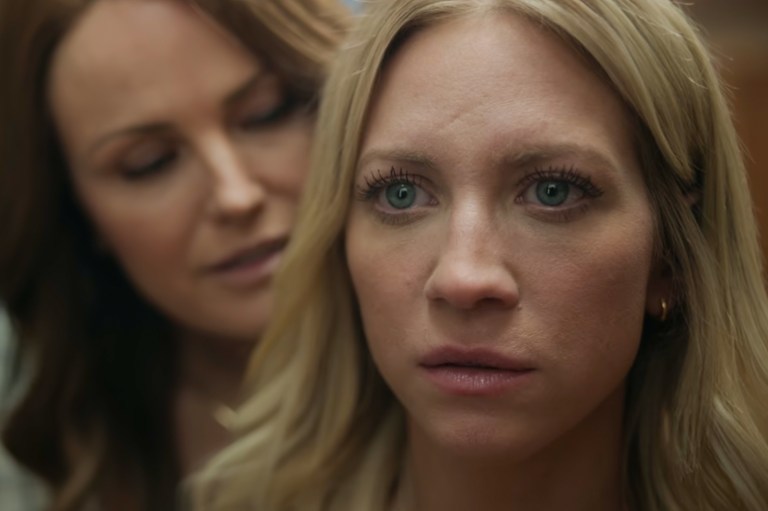
Life Isn’t Meaningless — It’s Tragically Hilarious
To transcend meaninglessness, we must lean into it and acknowledge it. For though our rolling of the stones of human experience up the various hills of life may come to nothing, “the struggle itself ... is enough to fill a man’s heart.”

“Out, out, brief candle! Life’s but a walking shadow, a poor player that struts and frets his hour upon the stage and then is heard no more. It is a tale told by an idiot, full of sound and fury, signifying nothing.”
— William Shakespeare, Macbeth (Act V, Scene V)
In just two words of five syllables, medieval man brewed a bitter antidote to all from melancholy and regret to hubris and ostentation: memento mori (“remember [that you have] to die”). The phrase reminds us that no matter what stirred our pasts, nor what will shake our futures, all of it shall inevitably come to naught. For we will — we must — die.
As an adolescent, my mind latched onto death like a gnat — obsessively, annoyingly, each and every day. But my personal memento mori brought existential pain and not relief. It was a discomfort I chided myself for feeling — there existed far too many real things to fret over, like work and school and a fast-encroaching tidal wave of loans.
But still. The very fact of death made me doubt the utility of all I did, especially material or external accomplishments, especially and even when others held those things out as possessing the utmost importance. Either things were permanent, I thought, or they lacked any purport at all. Memento mori.
My logic proved unremarkable: What is the meaning — the point — of any of this hub-bub if, at the end, I’ll die? Assuming there is no afterlife, that after dying I’ll return to that duplicate state (or non-state) of consciousness I possessed before birth — nothingness — what difference does it make whether I plod on to eighty or expire this instant? What gives if I live a life of public utility or private quietude? Either way, it will presently be as if none of this ever transpired. The curtains will descend over my consciousness — a brief and anomalous crack of light flitting amidst two eternities of darkness. The only realness is nothingness, the only truth our finitude, mortality, and cosmic insignificance against an incomprehensibly vast universe.
This nihilism held even when pondering selfless actions. For even others I help throughout life will eventually die, until all our actions come to naught, until all our subjective experiences and memories reside in no mind, until no conscious being is left extant within a cold and dying and diminishing universe to remember any experience at all. What is even four billion years of human existence aside the vast echoes of time assaulting every corner?
The only possible answer: Nothing. Because my mind will be extinguished upon my brain’s death, to my consciousness there can be no ultimate meaning, only transient meaning: To live is to write a novel that, once finished, is instantly forgotten.
“But,” one protests to this younger Michael, “you glean pleasure now.” Of course. Now I remember and cherish the awkward sweetness of my first kiss; now I remember and cherish the joys of past relationships, the learned lessons of mistakes made and sufferings suffered; now I continue to live on and to trudge, albeit imperfectly and with great uncertainty, through this confused existence. But it does not matter. Not ultimately. Because after death, I will no longer remember any of these experiences, as life — the enabler of experience — will have dissipated — forever, irrevocably, permanently. Because my consciousness is, in George Eliot’s words, but a “globule of dew on a rose-leaf that at midday there will be no trace of.”
So I didn’t fear death per se. As Epicurus remarked, death is literally nothing to our sensory organs and therefore nothing to us, and it makes little sense to fear what we cannot experience. No, what frustrated me was the logical inference that follows the fact of death: the idea that there is no objective meaning since death renders life meaningless. The notion that, in other words, all of this meaningful striving is absurd.
This subtle suspicion that everything I did was absurd, that my onward trudge depended on a false refusal to fully comprehend the terrific reality of death’s finality, spurred me to consume religion and philosophy. I desperately wanted an answer. Although I believed, deeply so, that life had no objective purport, that I was searching for meaning in a meaningless world, I yearned to be proven wrong. I wanted someone or something to fill my empty chalice with meaning until it overflowed with a water similar to that which Jesus promised his followers, something that could quench my thirst finally and forever.
I wanted to fully believe in the afterlife offered by religion and its meaning-bestowing God, but I couldn’t. I wanted, similarly, to trust in the Logos of Stoic belief, yet that faith too escaped me. I saw no evidence of objective meaning. All purpose, all desire seemed destined to come to no end, and even if some trace of our existence lived on after death through our impacts on others, the long line of deaths following our own, like a trail of extinguishing candles, meant that even the most indelible mark one could write on the collective human psyche would remain ephemeral.
Walking home after work, glimpsing at an array of purposeful men and women striding resolutely to some goal or other, the apt truth of Albert Camus’s observation would hit me: “At any street corner, the feeling of absurdity can strike any man in the face.” When confronted with ambitious friends pining constantly for this external goal or that, I’d nod along agreeably, but in my mind’s recess I’d think: Why bother? Why indeed live anything but an Epicurean life, if all meaning were fantasy? More morbidly, why not, as Camus asked, commit suicide and get the whole thing over with right now?
To put it simpler, life is absurd because there is no reason, or at least no objective reason, for the entirety of any one life. If I asked you to come meet me at the street corner of X and Y, you would demand a reason before bothering to come over, right? You’d demand a “why.” But, absurdly, we do not hold our own lives to that simple standard. We go through the motions of work and relationships and so on, but precious few of us take the time to gaze at the entirety of our temporal life and to grasp onto it and to stare it right in the face and to demand of it: To what end? Those of us who do, like Leo Tolstoy, venture perilously close to the edges of madness.
My search for answers found solace in only one thinker: Albert Camus. Why Camus? Because, even writers as brilliant as Seneca and Tolstoy do not fully wrestle with this concept of an absurd reality. They escape it — through belief in an afterlife, through some abstract “Good,” through an overemphasis on the present moment. By acknowledging and in fact embracing absurdity instead of running from it, Camus made it possible for me to retain my admittedly stubborn beliefs about the unreality of objective purpose and to still live a life of some meaning. He rendered it possible, in other words, for me to logically conclude that life could mean something even without an iron belief in God or an afterlife.
In his Myth of Sisyphus, Camus likens our human fates to that tragic Greek hero condemned to spend eternity rolling a stone up a hill only to watch it trundle back down — again and again. There is no end, in both senses of the word, to this man’s exertions (making Sisyphus’s situation even more absurd than ours, for at least our own actions end with death). Yet Camus’s Sisyphus is happy. Because absurdity is by definition humorous and because Camus’s Sisyphus fully recognizes the absurdity of his monotonous situation, Sisyphus can transcend his fate with laughter.
For “there is no fate that cannot be surmounted by scorn.” If everything is absurd, then even the worst that can happen is also absurd and worthy of scorn, a scorn that recognizes the transience of any human experience and its ancillary inability to affect one in the long-term. This outlook makes the highs seem less significant — after all, they too are meaningless in the objective sense. There is no universal meaning, no transcendent purpose that they satisfy. But accepting absurdism also makes the lows, and fretting about the lows, seem absolutely ridiculous. In a life as temporary as this, any anxiety about anything at all becomes worthy of contempt.
Camus’s absurdist philosophy thus echoes the timeless truth of memento mori, at least in its meditations on the ultimate triviality of temporal life in the face of permanent death. In a way, Camus’s thoughts provide a prism through which reality can be grasped and managed. Camus allows one who cannot buy into meaning-bestowing systems such as religion to nonetheless defy his or her absurd situation, not by escaping it (the answer offered by religion’s promise of an afterlife and its purpose-bestowing God) but, ingeniously, by leaning into it. Sisyphus can learn to love the process, the intimate feel of every nook and cranny of craggy ground as he drives the stone upwards; by confronting life’s absurdity, its apparent lack of meaning, a reason for existing — defiance — emerges.
A disclaimer: My interpretation of Camus is not entirely faithful to his philosophy, and I still hold doubts that mean I cannot buy into absurdism as an antidote to all existential woe. After all, I’m lucky enough that I don’t have to struggle with chronic disease, stifling poverty, or life in a war-torn nation. Would someone in that sort of intractable situation really be comforted by recognizing life’s absurdity? Can physical pain really be transcended by a recognition that “it will all be over eventually” or that one’s evanescent consciousness can only feel and remember an awful experience for so long? I don’t think so. The comfort provided by memento mori and absurdist philosophy may, like so many things, be a privilege reserved only to those who have attained a certain degree of security on Maslow’s hierarchy of needs. A mind wracked by hunger possesses precious little room with which to contemplate the absurd. Moreover, I have not, like Camus, come to the unequivocal conclusion that there is no God.
But absurdism’s absurd truth is still there. The power to comprehend the meaninglessness of it all means that one can look upon the world’s happenings, good and bad, with a sense of humor. One can stare even death in the face — and laugh.
In his excellent book The Obstacle Is the Way, Ryan Holiday writes that to overcome our problems we must grasp them, using them as fuel to propel ourselves forwards and upwards. There are doubtless others who, like my adolescent self, view the apparent objective meaninglessness of life and its consequent absurdity as an insurmountable obstacle to personal fulfillment. To those people I say this: The obstacle is the way.
To transcend meaninglessness, we must lean into it and acknowledge it. For though our rolling of the stones of human experience up the various hills of life may come to nothing, “the struggle itself … is enough to fill a man’s heart.”
Or, as noted by the Marcus Aurelius of Gladiator, “Death smiles at us all; all a man can do is smile back.” ![]()











